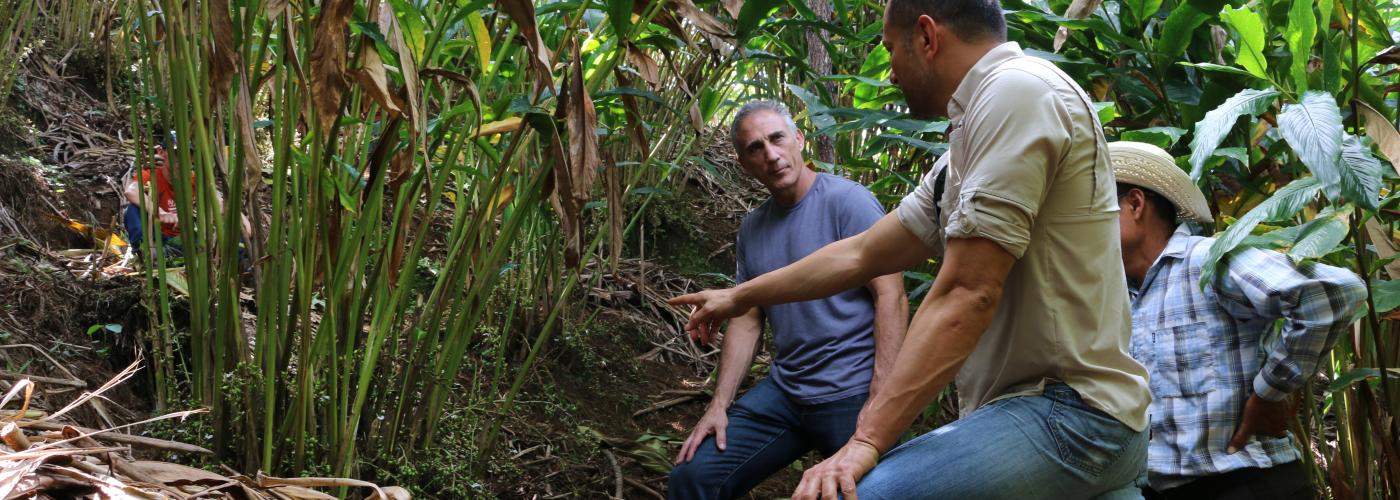Cooperation Amongst Cooperatives: Proving Cooperative Values Work
Image

In international development, we often talk about how the private sector is a key ingredient to unlocking a resilient market system. The private sector can: provide an outlet for aggregated product; serve as a technical resource to build capacity and improve quality; offer access to financial capital; and drive sustainable relationships at origin. So, what happens when the private sector also becomes a direct implementer of one of USAID’s projects on the ground?
Since 2018, Frontier Co-op has been working with USAID on the Cooperative Development Program (CDP). Our CDP work started in Sri Lanka, with the Small Organic Farmers Association (SOFA), and has expanded over the years to include work in India with Young Mountain Tea’s small-scale tea farmers, and in Guatemala with FEDECOVERA, a cooperative federation that aggregates organic cardamom, allspice, and turmeric, among others, from its member cooperatives. Today, FEDECOVERA is comprised of 42 cooperative partners and more than 120 groups of small producers benefitting more than 33,000 farming families.
Frontier Co-op and FEDECOVERA have been working together since 2007. But it is our work under CDP that has truly transformed this partnership. Historically, while FEDECOVERA was able to perform primary processing, they did not have the capacity to perform secondary processing of member product (i.e., pasteurization, grinding, and sterile handling). Instead, the product was sold to international customers who then provided the value-added work in the US or Europe. In 2021, Frontier Co-op set out to shift this value back into hands of the cooperative members. Together, USAID, Frontier Co-op, and FEDECOVERA co-invested approximately $325,000 in the infrastructure required to adopt these pasteurization, grinding, and sterile handling processes in the local processing plant, keeping more of that value at source. We also brought in international expertise from Mexico to lead training, in Spanish, on high-level food safety principles, good manufacturing practices, contamination control, and pest management.
“During our journey we have found great partners, like Frontier Co-op,” said Gabriela Delgado, FEDECOVERA’s Marketing and Logistics Manager. “Frontier has become for FEDECOVERA not only a business customer but also a key partner to develop important projects among our 15 years of partnership such as: developing the allspice and turmeric value chains, the improvement of our dental clinic, co-investing in the processing facility to add value to our products, and increasing our capacity to provide health services by supporting a mobile clinic to reach more members directly at their location. We are aware that there is a long way to go but we are proud to have such a strategic partner as Frontier along this path.”
FEDECOVERA is just one example of how cooperative development can serve as a pathway to improved livelihoods for farmers and communities alike. As a co-op ourselves, Frontier has found win-win opportunities to build the capacity of our cooperative partners to better serve their members while providing a guaranteed market for their product at a premium price and helping to expand their market penetration by offering a value-added finished good. Earlier, I posed the question – what happens when the private sector becomes a USAID implementer? The answer is simple. When USAID’s investment ends, Frontier Co-op's commitment remains as a dedicated buyer and a partner to cooperatives at origin. This not only increases the impact of USAID’s investments but ensures longevity and sustainability at scale.
This post comes from an implementer of the Cooperative Development Program under USAID’s DDI LFT Bureau.
About Frontier Co-op. Founded in 1976, Frontier Co-op is a leader in organic and natural herbs, spices, and botanical products. Through our Well Earth sustainable impact sourcing program, we build relationships with our sourcing communities, strengthen the resilience of our farmers and supply chain, and improve social and environmental impact. We work closely with our partners to ensure they’re utilizing sustainable business practices, investing in value-added processes, and producing a lasting supply of high-quality product.

